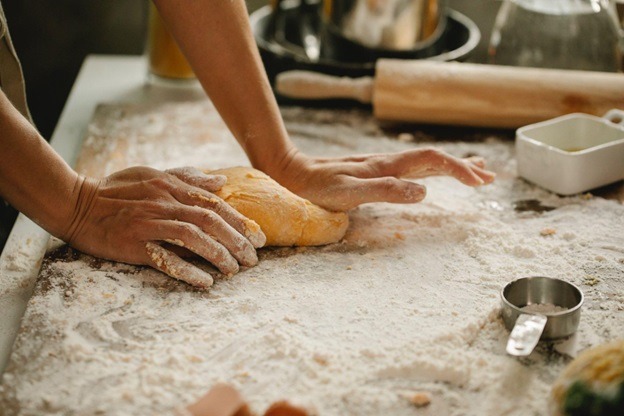If you plan on starting your own business, a home-based food business might be the perfect fit for you. Starting your own food business is a challenging but very rewarding experience. There are so many things to think about when starting a food business, from the initial planning stages to the day-to-day operations.
The following article will walk you through everything you need to know to start a home-based food business in New York City. We’ll cover topics like budgeting, licensing and regulations, marketing your business, and creating a menu. Let’s get started!
Considerations Prior to Starting Your Business
New Yorkers have an entrepreneurial spirit, they start businesses every day, and they are not afraid to invest. Regardless of the business you are starting, the first step is to set up a budget.
Unlike food truck startup costs, for example, which can vary anywhere between $30,000 and $100,000, the start-up costs for a home-based food business are much lower. Still, you will need to calculate your initial and ongoing expenses, if you want to have a chance at succeeding.
Then, you need to consider the legal matters associated with starting a home-based food business. Generally, this involves the necessary permits and licenses, the business structure, the type of food you can prepare from your home, and some basic food safety rules you must follow to run a successful business. Below, we elaborate on these points.
All the Legal Documentation
This includes the structure of your future business. Many home-based food business owners are sole proprietors. However, this comes with possible liabilities because you are responsible for paying taxes, loan rates, and if there is food poisoning or a bad food batch, that’s completely on you as well. Taking a more formal approach to the structure, and owning a limited liability company is highly recommended.
Moreover, to run a legal home-based business, you need to submit an application for an exemption to the licensing requirements that are typically imposed on food manufacturers. Your kitchen will be inspected, as well as your water, in case you use a private water supply system.
A good rule of thumb is to consult a lawyer who will help you figure out the required licenses, permits, and exemptions, to ensure you got everything right.
Food That You Can and Can’t Prepare
We all love homemade food, and some people love making it for others. Nothing tastes better. But, some regulations in New York apply to the food that you can and can’t make and sell from your home. Baked goods that don’t require refrigeration, fruit preserves, and snacks such as popcorn are fortunately on the menu.
Unfortunately, there are yummy recipes that won’t find their way into your home-based food business menu. According to New York laws, you cannot produce food that includes fluid dairy products (milk, yogurt), raw nuts, or chocolate candy. You can find a detailed list online with all the products that are allowed or forbidden.
Food Safety Requirements
Many food safety requirements must be met to ensure the safety of food. These requirements are designed to protect consumers from harmful bacteria, chemicals, and other contaminants that may be present in food. By following these rules, you avoid food poisoning.
Home-based food businesses must make sure the food is properly cooked and stored in clean, proper containers. All containers should have labels so that people know exactly what’s inside (keep in mind that some people have intolerances and allergies). Glass containers with produce inside should be properly closed and handled to avoid potential injuries.
Food Preparation
It is allowed to produce, sell, and ship food to local restaurants and businesses. You can also ship it across the country, as long as it follows the rules mentioned above. But, some other rules apply to the space where you create it—your kitchen. NY laws state that while you can prepare food in your house, you must use an additional kitchen.
Using the same space to cook home food and the food you’ll sell may easily lead to cross-contamination, which means traces of nuts or liquid dairy may find their way into your ‘business’ food. To be on the right side of the law, make sure you have a separate kitchen, with separate utilities and products. For this reason, you may consider looking for new plates and bowls for your business. It is more hygienic, easier to follow food safety guidelines, and prevents cross-contamination of foods since you are using different materials. Another benefit is that it will also serve as a convenient medium for displaying the food. Keep in mind that tableware must serve a functional purpose. Function must always be prioritized over visual aesthetics when choosing plates and bowls. It is good to know that with so many choices and options for tableware, you can find dinnerware that serves both functionality and fashion. The functions include controlling portions, keeping food warm as long as possible, and using the appropriate plates for storing the food.
Bottom Line
Everything you need to know to start a home-based food business in NYC in one article. It’s not easy, but with a lot of hard work and some luck, you could be the next big thing in the city’s food scene. Just make sure you adhere to all of the regulations and get your paperwork in order, and good luck.


